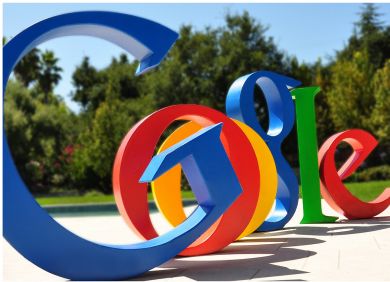Google Includes Knowledge Graph In Revamped Search

Google has begun delivering the revamped version of its search engine, which includes a Knowledge Graph
Google has begun rolling out the latest generation of its search engine as predicted, and has also unveiled what officials are calling the Knowledge Graph.
The Knowledge Graph is designed to offer users an improved search experience by not only doing a better job of finding exactly what they are searching for, but also by then presenting the users with more information related to their searches. If a user searches for Leonardo da Vinci, they not only will get information about him, but information about his paintings and other works, and information about other Renaissance figures.
Relevant Search
“The Knowledge Graph enables you to search for things, people or places that Google knows about – landmarks, celebrities, cities, sports teams, buildings, geographical features, movies, celestial objects, works of art and more – and instantly get information that’s relevant to your query,” Amit Singhal, senior vice president of engineering at Google, said in a 16 May post on the search giant’s blog. “This is a critical first step toward building the next generation of search, which taps into the collective intelligence of the Web and understands the world a bit more like people do.”
 Google’s unveiling of Knowledge Graph comes at a time when there is a lot of focus on the Web 2.0 market. Microsoft on 11 May rolled out a revamp of its own Bing search engine, which included the ability to feature social results from Facebook and Twitter in searches. Microsoft also made changes to Bing designed to make it easier to use.
Google’s unveiling of Knowledge Graph comes at a time when there is a lot of focus on the Web 2.0 market. Microsoft on 11 May rolled out a revamp of its own Bing search engine, which included the ability to feature social results from Facebook and Twitter in searches. Microsoft also made changes to Bing designed to make it easier to use.
Google continues to be the dominant search engine, with 66.5 percent of search results in April, according to numbers compiled by comScore. Microsoft’s Bing was a distant second, at 15.4 percent, with Yahoo in third at 13.5 percent.
Google’s move also comes the same week that social networking giant Facebook, a growing rival of Google’s for Internet ads, launches its initial public offering (IPO) of stock, an event that could shoot the company’s value to close to $100 billion (£63bn). The Knowledge Graph, which reportedly has been talked about in the industry for months, could be seen by some as a way for Google to remind the industry that despite the hype around the Facebook IPO, it is still a significant innovator.
Database Tweak
According to Singhal, Google is leveraging a database of more than 500 million objects, and more than 3.5 billion facts not only about those objects, but also the relationship between them. Google engineers have gone back and looked at what users have searched for and what they have been asking about for each item. “For example, people are interested in knowing what books Charles Dickens wrote, whereas they’re less interested in what books Frank Lloyd Wright wrote, and more in what buildings he designed,” he wrote.
Google search users in the United States should start seeing the Knowledge Graph in their searches over the next few days, according to Google officials. When they start their search by entering a query, the Knowledge Graph for their query will show up to the right of the search results. One example Google used was of the name “Taj Mahal,” which could refer to the ancient temple in India, the blues singer or the casino in New Jersey.
Once Google determines which Taj Mahal is being searched for – for example, the musician – the Knowledge Graph will list various other relevant topics, possibly from albums Taj Mahal has released to other singers in the same musical genre. Click on one of those singers, and related information to that person is then displayed.
“We’ve always believed that the perfect search engine should understand exactly what you mean and give you back exactly what you want,” Singhal wrote. “And we can now sometimes help answer your next question before you’ve asked it, because the facts we show are informed by what other people have searched for. For example, the information we show for Tom Cruise answers 37 percent of next queries that people ask about him.”
It’s also a natural evolution for the company, according to Johanna Wright, product management director at Google.
“We’re in the early phase of moving from being an information engine to becoming a knowledge engine,” Wright said in a video about the Knowledge Graph.
Google reportedly was able to leverage the technology it inherited in 2010 when it bought Metaweb, which had developed a knowledge base, dubbed Freebase, in developing Knowledge Graph.
Do you know Google’s secrets? To find out, take our quiz.